‘I feel dirty – but Labour took us for granted’: Why Workington Man has no regrets about voting Tory
Colin Drury finds out how Boris Johnson won over the hypothetical voter experts said he needed to take a majority

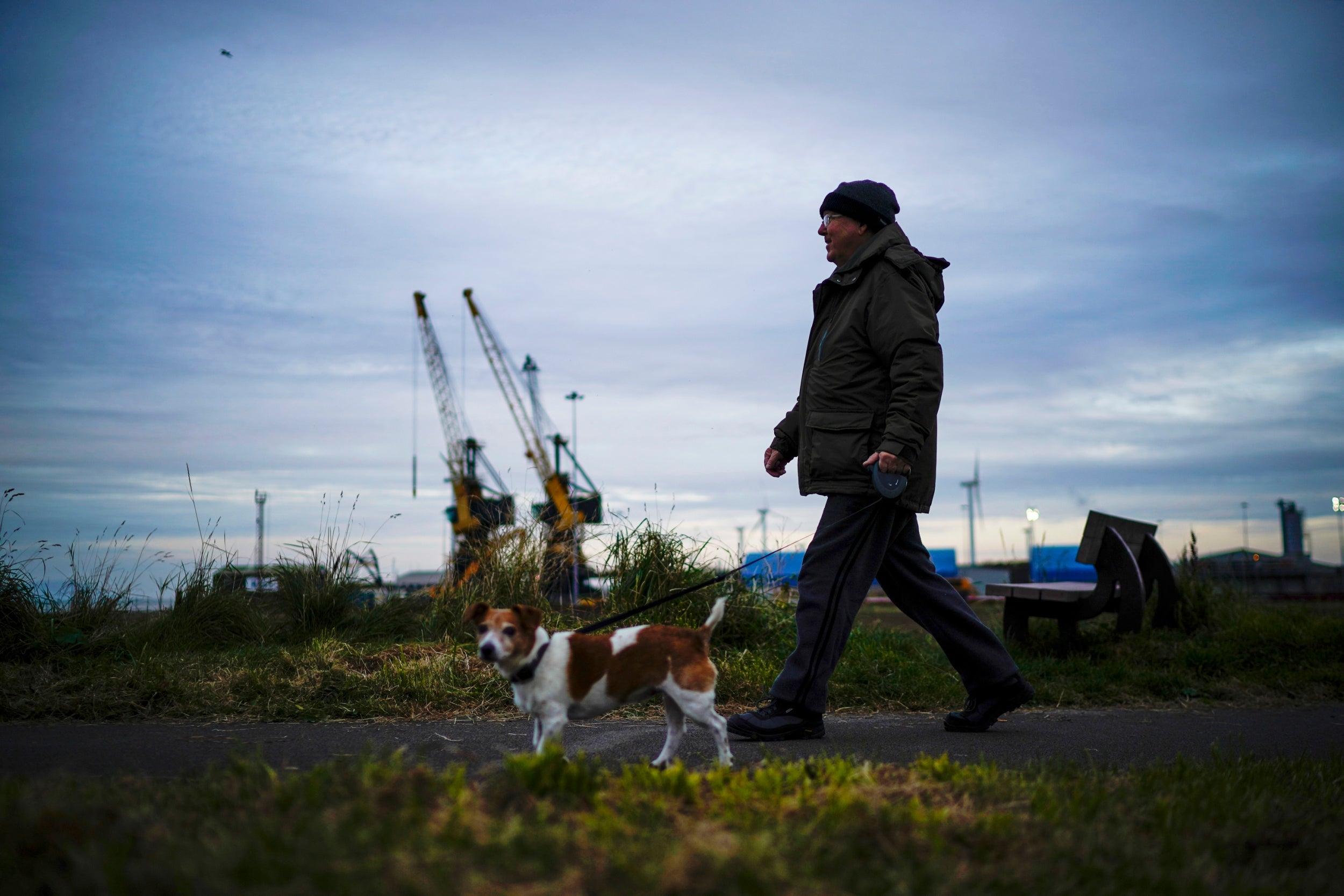
Your support helps us to tell the story
From reproductive rights to climate change to Big Tech, The Independent is on the ground when the story is developing. Whether it's investigating the financials of Elon Musk's pro-Trump PAC or producing our latest documentary, 'The A Word', which shines a light on the American women fighting for reproductive rights, we know how important it is to parse out the facts from the messaging.
At such a critical moment in US history, we need reporters on the ground. Your donation allows us to keep sending journalists to speak to both sides of the story.
The Independent is trusted by Americans across the entire political spectrum. And unlike many other quality news outlets, we choose not to lock Americans out of our reporting and analysis with paywalls. We believe quality journalism should be available to everyone, paid for by those who can afford it.
Your support makes all the difference.The Cumbrian town of Workington seemed much the same on Friday morning as it had the previous day. The Christmas lights still twinkled; shoppers still went about their business; the local Wetherspoon still did, even at 8am, a decent clip of business.
Yet, overnight, history had been made in this coastal community. The Workington Man – a voter-type identified as key to electoral success – had turned to the Tories. For only the second time in more than a century, this Labour heartland – widely considered one of the most solid bricks in the so-called great red wall – elected a Conservative MP.
At 1.30am, at the town’s glass-fronted leisure centre, presiding officer Andrew Seekings announced that Sue Hayman had been beaten by challenger Mark Jenkinson.
On a disastrous night for Labour, this town’s fall preceded the collapse of one-time industrial safe seats across the north: Great Grimsby, Wakefield, Bolsover and Bishop Auckland among them.
And on the morning after the night before, few here appeared to have any real regrets about turning to the party of Thatcher, de-industrialisation and – a particular sore point in this part of the world – steelworks closures.
“I feel dirty for doing it but, aye, I voted Tory,” David Dixon tells me in the town centre’s Washington Square plaza. “Labour has taken us for granted for too long. They thought they could ignore us and we’d keep voting. Well, now, they know they can’t.”
He himself – a steelworker of 40 years – had never voted for anyone else until last night. “But it’s the party that moved away from me,” the 56-year-old said. “Not me from it. They forget the grassroots. They forgot who they are supposed to stand up for.”
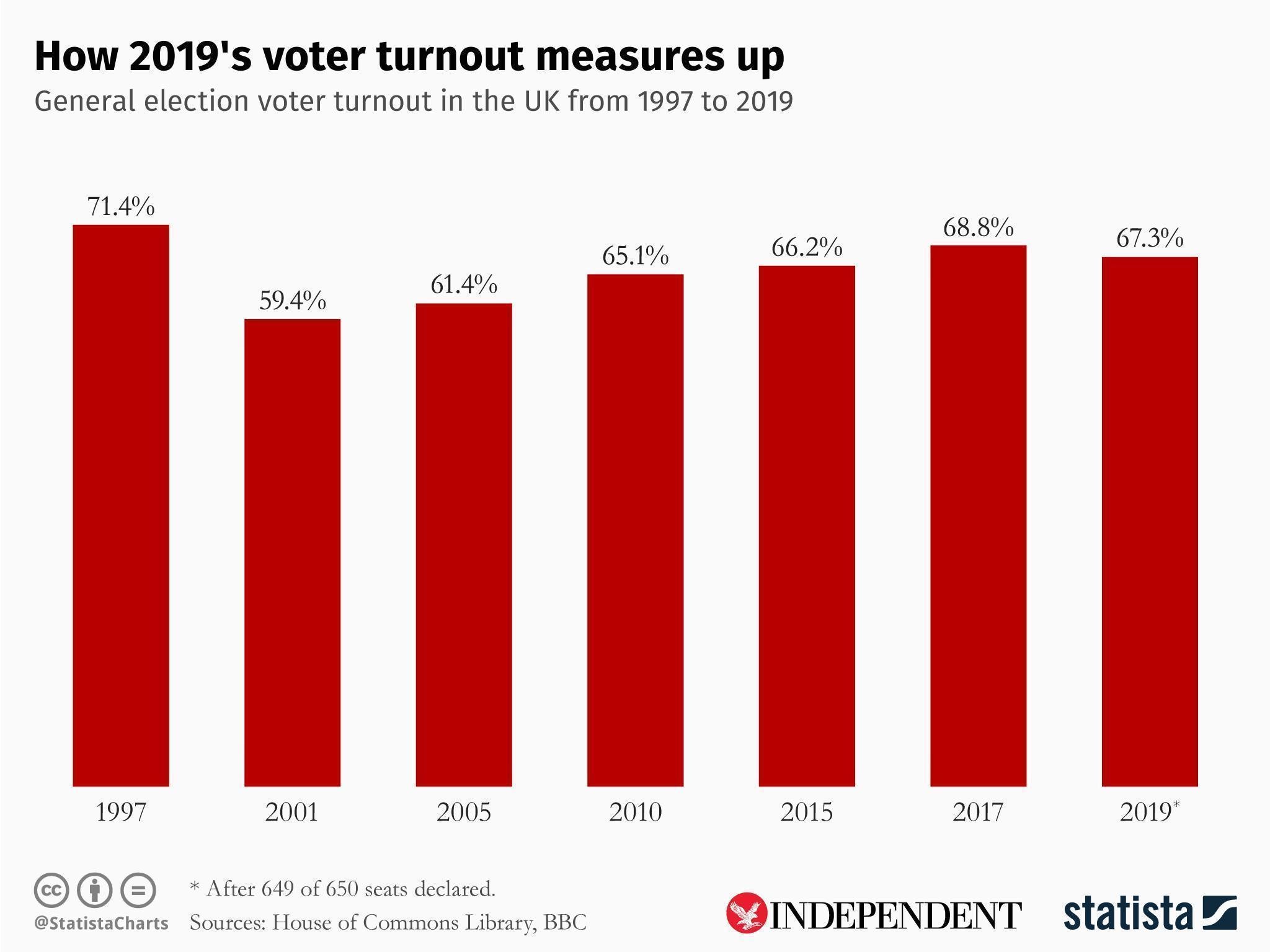
Of all the northern seats to fall, of course, this one had special symbolism and felt particularly totemic.
Ages ago, at the start of this election campaign – eras back – in a time since which entire galaxies have quite possibly been born and died, before fridgegate and punchgate, free broadband and Brexit bonking – there was Workington Man.
This northern caricature – rugby lover, ale drinker, Leave voter – was named as the type of person the Tories needed to win over if they were to triumph at the ballot box. He was white, working class and worried about crime and growing economic alienation. Does that describe Dixon, I ask?
“Aye, it’s not far off,” he nods. “I’m not daft. I know Boris isn’t going to do anything for me but at least he’s committed to making Brexit happen. That’ll do for now.”
This, it seems certain, was the sticking point for many. Some 60 per cent of people here voted to leave the EU in 2016 and few were keen on talk of Jeremy Corbyn’s plans for a second referendum. Or, indeed, on Jeremy Corbyn full-stop.
“They were trying to weasel out of giving us Brexit,” says Will McCall, another lifelong Labour voter who shifted allegiances. “Sue Hayman especially was trying to stop it. She’s been punished for that.”
The 71-year-old retired factory worker and wife Denise speak as they enjoy a breakfast pint and morning newspaper in the aforementioned Wetherspoon pub. They plan on staying here until early afternoon but will, they say, “pace ourselves”.
Will they discuss the election results over the course of the day? “I’m sure we will,” say Denise, 64. “We’re happy enough with it. We certainly didn’t want Corbyn.”
A draft of her drink. “How can you trust a man,” growls the grandmother-of-two, “who doesn’t know when the Queen’s speech is on Christmas Day?”
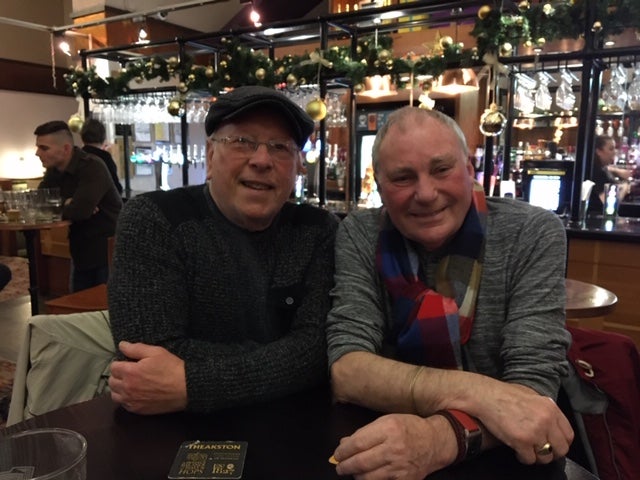
Even Labour voters here were not surprised by what happened in the end.
“You can’t frustrate democracy,” says Jim Graham, a retired joiner and one-time drummer who had performed with Shirley Bassey back in the day. “This is England. The people won’t have it.”
He himself had stuck true to his socialist ideals and stayed red – but he saw the blue wave coming. “I’m disappointed but not surprised,” the 76-year-old says. “Just from speaking to people I knew it was going to happen. They’re fed up and tired. They keep voting Labour and nothing changes. We voted out of the EU and for three years we’ve had an MP go against that.”
What now for the party, I wondered. “An uphill fight,” is the despondent reply. “People say these places will return to Labour after Brexit but... I’m not so sure. There are bigger problems than I think the party realises. They’ve lost a lot of people for good.”
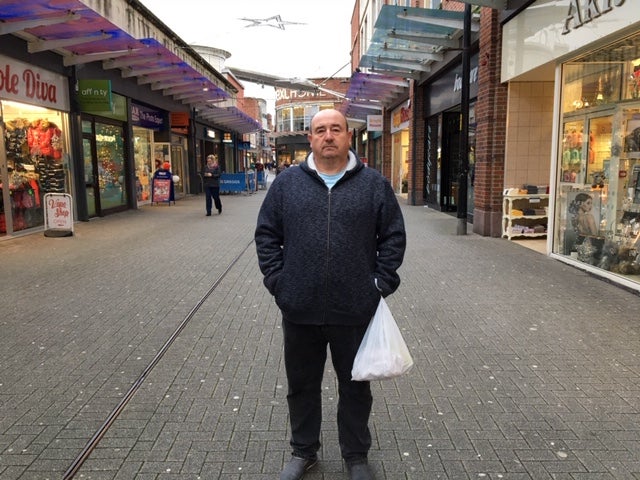
Certainly, it’s worth saying that, in the end, the shift up here wasn’t even close.
Jenkinson, a 37-year-old local councillor, didn’t just win. He stormed to victory. He claimed a majority of 4,176 and gained an extra 7 per cent of the vote share from 2017.
For the hour before the results were called, this bear of a man – a self-employed nuclear contractor by profession – walked around that leisure centre smiling and shaking hands with supporters.
“I am Workington Man,” he told me at one point. “I’m a working class lad who believes and has campaigned for Leave. And I can tell you there would be no greater honour than to be elected an MP by your peers. I would work tirelessly to see Brexit through and improve this area for everyone.”
His winning speech riffed on similar themes.
“We will deliver on what Workington voted for three years ago,” he said. “We will get Brexit done. We we’ll make Workington thrive again.”
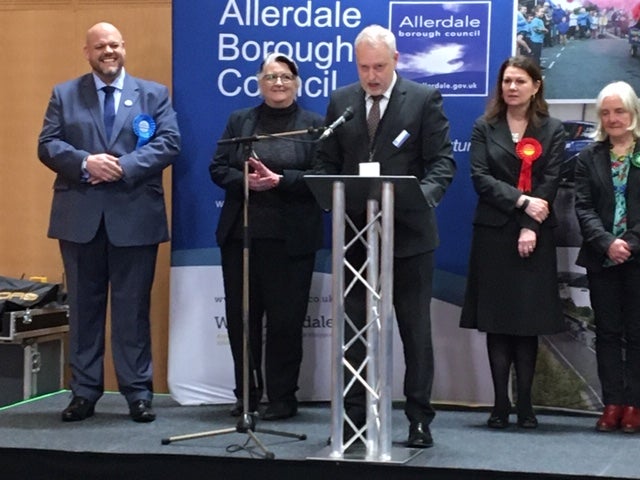
Hayman, by contrast, did not turn up until an hour before the verdict was revealed.
“We’re hearing it will be close,” she told me – although even that felt like a holding statement for the bad news to come. More telling, perhaps, was her verdict on her leader long before her own kicking had been announced.
“If these exit polls are to be believed,” the 57-year-old said, “then I think we do need to see a new leader sooner rather than later.”
It is a line of thought many of her constituents were considering by morning.
“Of course he has to go,” says John Law, a 65-year-old retired steelworker who himself had kept faith with Labour but understood the rightward shift. “The party has let us down. I don’t blame anyone for voting Tory because Labour had stopped listening under Corbyn. But what worries me is what now? What will become of places like Workington under five years of a windbag like Boris?”
Join our commenting forum
Join thought-provoking conversations, follow other Independent readers and see their replies
Comments